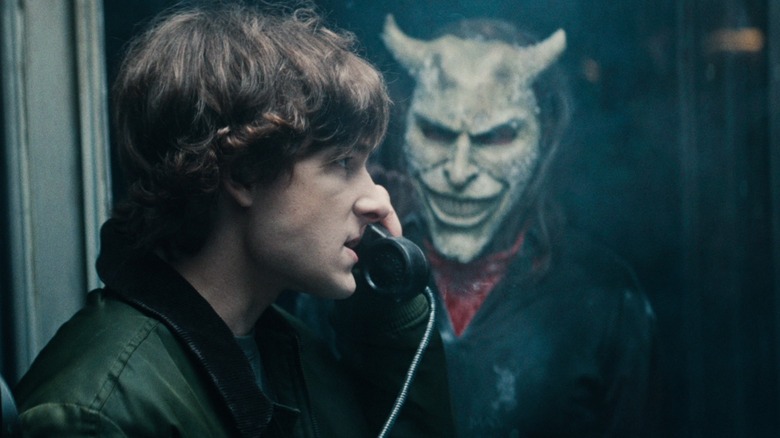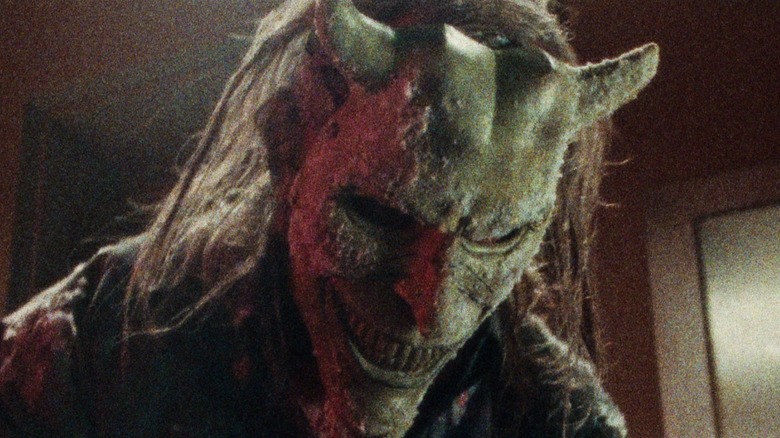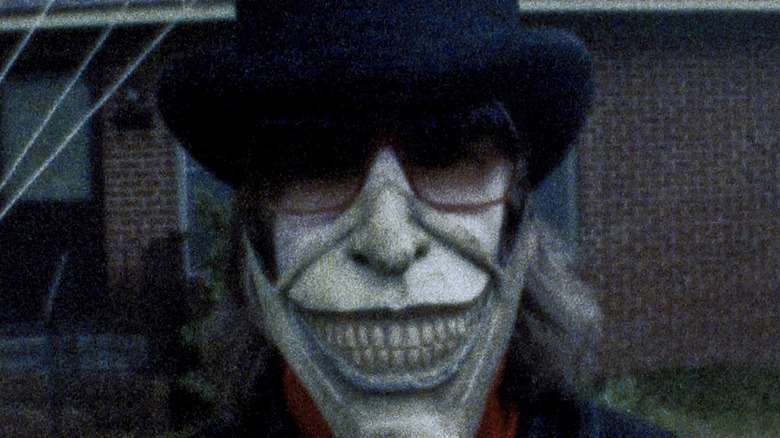Is The Black Phone Based On A True Story?
We may receive a commission on purchases made from links.
In 2021, Ethan Hawke made a strong case for joining the ranks of modern monsters when he took on the role of The Grabber in Scott Derrickson's "The Black Phone." Daring to try and take a slice out of Freddy Krueger's rulebook, Hawke did an exceptional job as the masked murderer that even the afterlife couldn't contain, as shown in "Black Phone 2" (read our review here). But setting aside the supernatural elements of these two beloved movies, what was the inspiration behind "The Black Phone" movies?
As is often the case with many horror films, some of cinema's scariest villains have been inspired by real-life living nightmares that struck fear into the hearts of society. Just recently, for example, the Netflix series "Monster: The Ed Gein Story" highlighted that the titular killer was the inspiration behind films like "Psycho" as well as "The Silence of the Lambs." Some of "Black Phone's" darkest elements were no different, sparked from real-life events. But just how much fact can be found among the fiction? Well, for that, we need to first break down what the story is all about, and the writer responsible for bringing the grinning child-killer known as The Grabber to life. Please hold while we redirect your call.
What is the Black Phone about?
The first film was adapted from a short story written by Joe Hill, son of legendary horror writer Stephen King
(who also praised "Black Phone 2")
, who has carved up a hefty section of scary stories himself. Taken from the pages of Hill's collection,
"The Black Phone" sees a brother and sister from a broken home have their lives made all the more worse when Finny finds himself as the latest victim to be captured by the mysterious Grabber, an illusive masked serial killer who has been abducting children in the area. All hope seems lost for Finney when he wakes in a barren basement with only a disconnected black phone in the room with him. That is, until the phone begins to ring and Finney soon starts taking tips on how to escape from the ghosts of The Grabber's previous victims.
Eventually, with the help of children that didn't make it out, Finney overpowers The Grabber, while his sister, who has psychic abilities, goes searching through the streets for her brother's whereabouts. While a majority of the story certainly leans into the fantastical, some elements of the Derrickson-directed adaptation of Joe Hill's work actually ring true, as aspects of The Grabber's methods mirrored those of real-life serial killers.
The Black Phone is inspired by real-life events and killer clowns
During an interview with Vanity Fair, Hill revealed that The Grabber was an amalgamation of notorious real and fictional killers, one of whom was from one of his father's most feared and favored frightening stories (originally dedicated to him, his sister, Naomi, and his brother, Owen): "It." In the film, Hawke's horrifying character was a local magician; in the book, he was a part-time clown (though we doubt he got many bookings with that mask). "It isn't that hard to understand why we made that change," Hill explained, given that Pennywise had once again been revived in moviegoers minds thanks to the recent updated adaptation.
"When I wrote 'The Black Phone,' it had been 20 years since I read the book [Stephen King's 'It'] and 15 years since I'd seen the TV movie and I never thought of It at all. It never crossed my mind once," Hill confessed. "What I was thinking about were the more notorious child killers from American history. And the first one that springs to mind, the one that's inescapable, is John Wayne Gacy — who was a part-time clown." So between Gacy and Pennywise, The Grabber really was living up to his name, snatching snippets of some of the most feared names in movie and true-life horrors, while bringing a new brand of fear all on his own.


